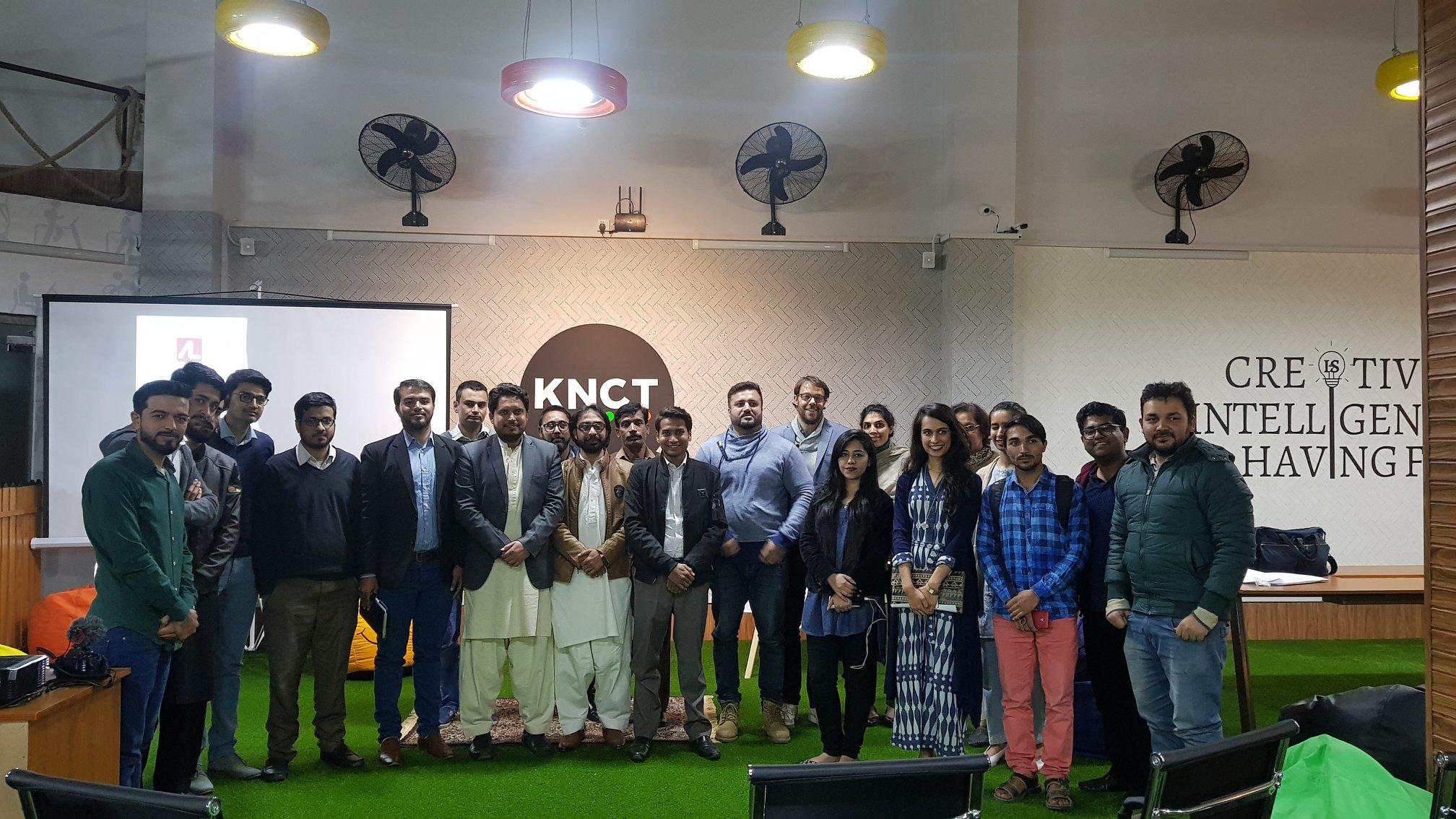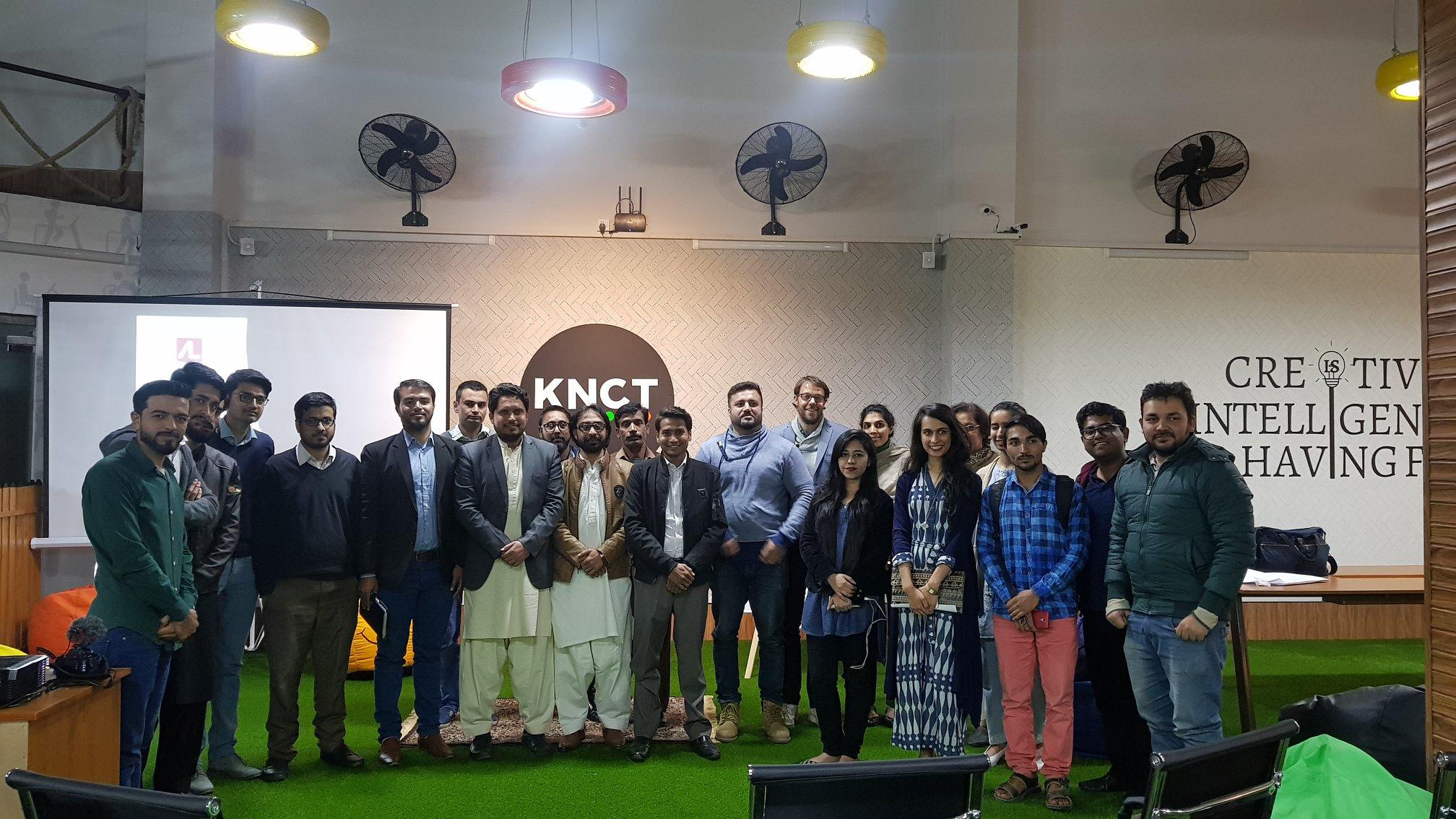NEWS
December 19, 2018

IN BRIEF
Over the past nine months- with the support of the Open Society Foundation- the Accountability Lab has hosted Fail Faires in Liberia, Mali and Pakistan. For those of you not familiar with the idea, a Fail Faire is an intentional, public effort to celebrate failure as an opportunity for learning. Failure is inevitable- and productive- but too often in the world of international development and beyond it is not acknowledged, and not used as a process to improve. The power dynamics of aid and philanthropy in particular do not always encourage honest conversations about what has gone wrong (and things [...]
SHARE
Over the past nine months- with the support of the Open Society Foundation- the Accountability Lab has hosted Fail Faires in Liberia, Mali and Pakistan.
For those of you not familiar with the idea, a Fail Faire is an intentional, public effort to celebrate failure as an opportunity for learning. Failure is inevitable- and productive- but too often in the world of international development and beyond it is not acknowledged, and not used as a process to improve. The power dynamics of aid and philanthropy in particular do not always encourage honest conversations about what has gone wrong (and things always go wrong!); nor does failure fit neatly into many results log-frames or reporting tools.
This effort built on a series of learning conversations we have hosted (in Pakistan and Liberia for example, and more broadly) over the past several years, which have indicated that perhaps we needed to take a step back to the idea of failure and understand it as the starting point for deeper conversations about learning. So, this year we set out to see how failure is understood across three very different places, how it can be embraced as an important part of organizational change, and the lessons our communities are taking away when they haven’t achieved their goals. Here are some thoughts about failure from the 100+ participants we drew together from our teams and representatives from government, civil society, business, donor organizations, media and youth groups; and even one of Mali’s most famous musicians:
- Being open is the first step– very few of the participants at our Fail Faires had ever been to any kind of public event to celebrate failure; and many admitted they rarely talk about failures openly. We discovered that even in proud cultures and in communities where weaknesses are often hidden, people admit that it helps to have someone to talk to openly about what is going wrong and why. Social and political change is hard, and this led to a series of conversations about how we can help each other simply by active listening. Allowing others to vocalize their challenges in itself can be a process that leads to solutions. (Note to many well-wishing parents in Liberia, Mali and Pakistan- unsolicited advice that varies every day is not always useful for your world-changing children).
- Failure is not always understood as a process to challenge assumptions– across contexts, we found that once we all felt comfortable enough to admit failure, we could think through the lessons learned from it. But this is often be a linear process (“The project failed so we need to implement it better next time”) rather than a moment to challenge fundamental assumptions (“was this the right problem to be solving?). This allowed us to move into conversations about double-loop learning (recognizing the way a problem is defined and solved can be a source of the problem itself) and how this is relevant to accountability and governance. For example, we discussed corruption not as a problem of enforcement, but a problem of values and ethics- which led to very different ideas as to potential solutions.
- You need to fall in love with the problem you’re solving– a key thought, brought home in our conversation in Pakistan, is that failures are much easier to admit and learn from if you truly care about the work. This is intuitive, but failures are far easier to disregard- and lessons far easier to ignore- if you move onto something new. At one level, the lesson here is to do something you truly care about; but on another level the conversations often turned towards the vicissitudes of the aid system and the way donor priorities can often shift quickly or be dictated by decisions that are made far away from ground-level realities. Civil society participants in particular find it difficult to find time to learn from failures in a meaningful way when they often have to think immediately about where the next grant will come from.
- There are ways to challenge power structures through failure– a willingness or a space to admit and accept failure is of course a question of power dynamics. This is the case in any organization, but within governments this space can be particularly difficult to find- because of their hierarchical nature and the incentives that often exist to perpetuate rather than shake-up systems. But in our conversations at the Fail Faires and more broadly, we found that there are examples of this happening. In Pakistan, for example, a government official explained how he identifies low hanging fruit for positive reform- and then uses the credit from these successes to offset any disappointments at future failures. In Liberia, a recent Integrity Idol actually used failure– of over 20,000 students in a national- as a tool to show why reform was needed within the higher education system.
- We sometimes expect too much of ourselves– the kind of people we tend to work with are by nature trying to do important work and create significant changes in their communities. But our conversations at the Fail Faires drew out the idea that this change has to be a collective effort. All of our problems are shared, and the solutions need to be shared too. All too often we (and others) put too much pressure on ourselves to succeed, which inevitably makes admitting failure even more difficult. A big part of what we are trying to do at the Accountability Lab is build communities, and by this logic an individual failure within our community belongs to all of us. We need to lift each other up, support each other and make sure we are all pushing towards the change we want to see. It is ok to admit failure and know others will not judge you- that is what Fail Faires are all about.
We’re looking forward to hosting more Fail Faires in 2019- we’d love to hear ideas or thoughts as to how we can be thinking differently about failure and learning. Please reach out to [email protected] or [email protected] and find us on Twitter @accountlab.

